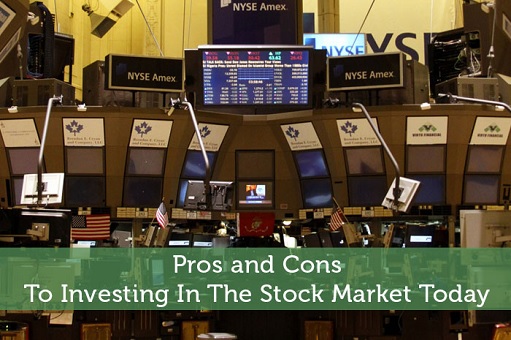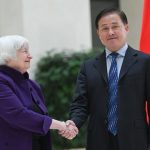Whether you should get involved in forex trading or stock trading depends on whether you fancy yourself Warren Buffet or George Soros. The famed value investor, Buffet, has earned a 30-year annualized return of 20 percent buying and holding value stocks for his holding company Berkshire Hathaway. While hedge fund manager Soros’ Quantum Fund has made a 33 percent return speculating in foreign currencies over the same period. While both investors whizzed past the 10.7 percent return of the S&P 500 with dividends reinvested over roughly the same timeframe, these two investment giants invest at the opposite ends of the risk spectrum.
Choosing between stock and forex trading depends on your risk profile and investment style. Largely influenced by Buffet’s success, more and more stock investors are choosing passive stock investment strategies and investing in value stocks, index funds and low-cost ETFs. This is analogous to putting your car in cruise control. From 1926–2016, value stocks cruised to returns of 17 percent while growth stocks earned 12.6 percent.
Forex trading is more like race car driving; it requires a lot of skill and experience. About 90 percent of forex traders are risk-taking speculators. Most traders will advise you to paper trade for up to three months before placing your real money at risk. The brokers that provide access to the decentralized forex market typically provide an account for practice. TradeFW, for example, allows trading in its over 60 currency pairs, indices, commodities and metals. The daily turnover in the forex market is over $5 trillion versus $200 billion for stocks.

Pros and Cons of Stock Trading
Stock Pros
- Large universe of stocks – The US stock market comprises over 6.000 companies traded on the NYSE and NASDAQ, and another 15,000 over the counter. Buffet, who invests in the stocks of products he uses including Coca-Cola and Apple, can easily find his favorites.
- High diversification – The large number of stocks enables diversification across industry (cyclical vs non-cyclical), investing style (value vs growth) and technical variables (price, volume, moving average).
- Low volatility – Large cap stocks have low volatility and can be a good place to start learning how to trade stocks.
Stock Cons
- Good liquidity – The stock market has daily trading volume of $200 billion, providing good liquidity in large cap stocks. While you can easily buy shares online, liquidity in small-to-medium cap stocks can be inconsistent and could raise the cost.
- Higher fees – A broker as middleman executes the trade in exchange for transaction fees. Compare online stock trading websites to find low and no fee trading.
- Manipulation – Some brokers manipulate fees and trading outcomes.
- High margin – Brokers typically require 50 percent of the value of investments in a margin account. Compare online brokers for the best online trading stocks

Pros and Cons Forex trading
Forex Pros
- Small universe of currencies – In the forex market, most trading activity takes place in the four major currency pairs — EUR/USD, USD/JPY, GBP/USD, USD/CHF. In total, 60-plus currency pairs are available for trading. This allows currency traders such as Soros to become experts in the economies whose currencies they trade. In 1992, Soros famously made $1 billion shorting the British Pound.
- High liquidity – Daily trading volume is over $5 trillion, providing good liquidity in the major and generally in the minors. The better the liquidity of your forex trading broker the tighter the spreads.
- Lower research costs – The price of professional stock research has soared, causing even large Wall Street firms to complain. You do need to follow the economic news of the countries of the respective currency.
- Low margins – Margins can be under 20 percent.
- Low to no commissions – Forex brokers make their money on the bid-ask spread. Traders can afford to engage in a high volume of daily transactions.
- Instant trade execution – Trading is automated, allowing buy and sell orders to be instantly matched.
- Small trades – Forex is traded in can be traded in small units or PIPS (point in percentage). Traders can put less than a dollar at risk.
Forex Cons
- Trade execution – The risk is high of not being able to close a trade at your desired price in volatile forex markets.
- Fast transaction speed – While the high-performance trading systems of large institutional traders ensures their trades are executed first, unfortunately, other traders often have to accept a less profitable price.
- High volatility – Forex traders make money from volatility, but unexpected volatility creates losses. Many forex hedge funds closed in the aftermath of the 2008 global financial crisis when central banks pumped unexpected liquidity (that is, printed more money) into the economy.
- Large swings in returns – Among hedge fund trading styles, FX/Currency was one of the top performers in 2015 but one of the lowest performers in 2016, and the only sector to have negative aggregate returns in 2017, according to eVestment. By employing forex trading strategies that hedge risk, you can lessen your risk exposure…
Whether you are stock or forex trading, the investment options and tools of the online trading exchange you choose to trade on will affect your performance. An exchange should also provide risk management tools to hedge your risk exposure. TradeFW is one of the best forex brokers for trading FX and managing forex risk. The regulated broker not only provides 60 currency pairs but also contract for differences (CFDs) on stocks, forex, commodities and indices. Like forex, CFDs allow you to trade price fluctuations.
“CFDs allow our traders to trade the price differentials on the underlying asset without the borrowing costs of owning it outright. Margins and fees are lower, and in some jurisdictions such as the UK, CFDs are exempt from stamp duty and capital gains,” explains Morgan Evans, TradeFW marketing manager.
With an understanding of the risks and rewards of the stock and forex market and a stock or forex trading broker with the risk management tools such as CFDs to help you manage these risks, you are ready to master the winning trading styles of a Buffet or Soros.

|
|
August 21st, 2018 by financetwitter
|


|

|

|

|

|

|




























Grasp the technical skills.. you’ll be alright in any waters.